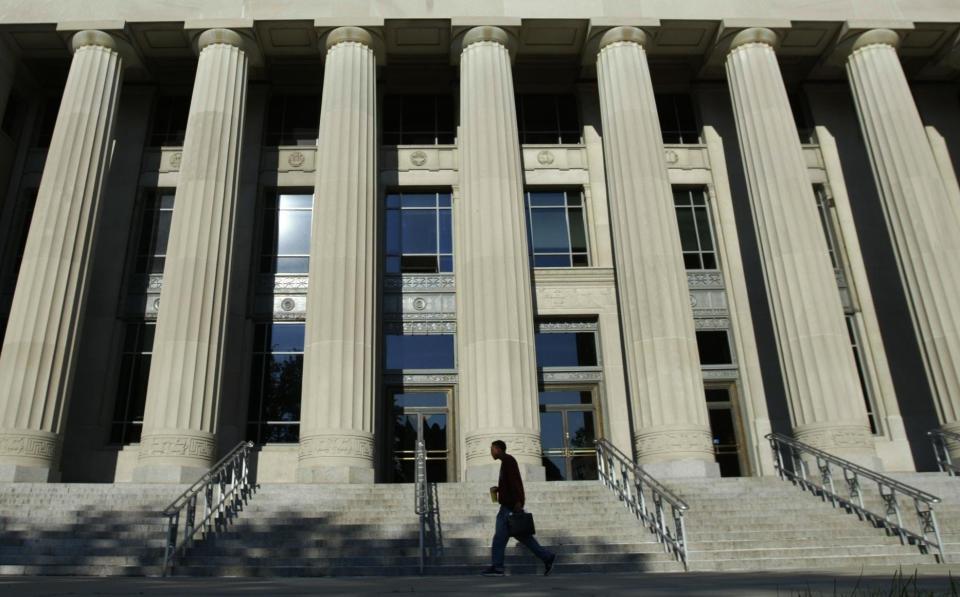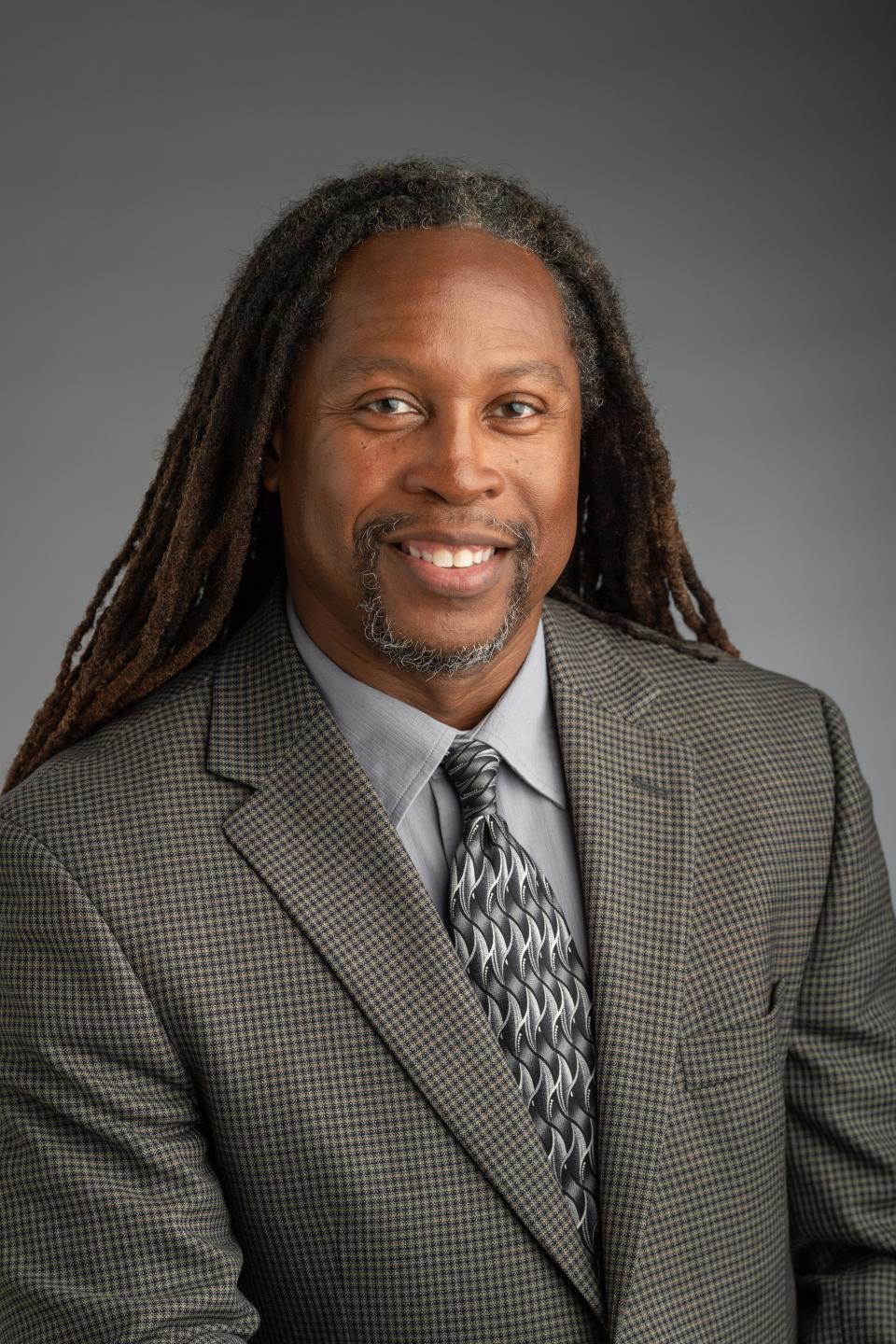Critics are passing anti-DEI laws. We have to fight back. | Opinion
The University of Michigan is a leader in diversity, equity and inclusion initiatives, with one of the largest DEI operations in the country.
That makes it an easy target for DEI critics.
The assault on DEI has been well-coordinated and well-funded. Opponents of DEI are more vocal than its supporters and frankly, I believe they are winning the public relations war. They have succeeded in making diversity into a bad word, and have used a Jedi mind trick to convince people that DEI initiatives are divisive, and lead to reverse discrimination, that DEI is ideological indoctrination and that the costs of supporting it at schools like U-M are dramatically increasing — and ultimately wasting — taxpayer dollars.
These coordinated attacks are yielding results. The Chronicle of Higher Education's DEI Legislation Tracker has documented that since 2023, 52 anti-DEI bills have been introduced in 24 states. Seven have become law, and seven are awaiting a governor's signature.
Diversity is not a bad word, yet you wouldn’t know it from the efforts to rename and rebrand it on college campuses. It is telling that in many instances the work of DEI is still being done, but under new names and administrative structures.
Supporters of DEI have allowed DEI critics to control the narrative. To turn the tide of public sentiment in favor of DEI, supporters must sharpen their arguments, go on the offensive instead of always reacting, and acknowledge the limitations and well-intentioned but harmful missteps in some applications of DEI that provide ammunition for critics.

Cherrypicking statistics
Among the most vocal critics of DEI is retired University of Michigan-Flint economics professor Mark Perry. In a recent analysis for the conservative news website The College Fix, Perry calculated the amount of money U-M spends on DEI. Perry’s analysis — part of his crusade to combat so-called “woke discrimination" — estimates that there are a minimum of 241 employees focused on DEI whose salaries and benefits total over $30 million, an additional 76 faculty or staff members working to implement DEI initiatives brings core DEI staff to 317, over 500 when considering part-time and other positions.
These figures have been disputed by the University of Michigan as “flawed and misleading.” In an email to The College Fix, university spokesperson Colleen Mastony indicated that there is no specific budget set aside for DEI and that the figures compiled by Perry include employees whose primary responsibilities extend beyond DEI-related activities. But critics like Perry use these inflated numbers to argue that universities are wasting valuable resources on DEI that could be used to support more worthwhile initiatives such as giving students a tuition break or funding need-based scholarships.
Critics also cynically report cherry-picked diversity statistics as evidence of the supposed ineffectiveness of DEI initiatives. For example, a recent article in the conservative tabloid New York Post cited the Chronicle of Higher Education as reporting the percentage of U-M students’ satisfaction with campus climate decreasing from 72% in 2016 to 61% in 2021.
The same article also reported that Black students’ enrollment at U-M dropped slightly from 4.3% in 2016 to 3.9% in 2021. The article cited U-M’s Black Student Union as saying that Black students’ experience on campus has hardly improved, even though $85 million dollars was spent on DEI efforts. (On a side note, if you believe that critics of DEI really care about declining Black student enrollment and Black students’ welfare, I have a bridge to sell you.)
But it’s not even clear whether Black student enrollment has declined, given that the same source also reports a 1% increase in Black student enrollment during this time. Not surprisingly, the article does not report that Black graduate and professional students, Asian/Asian American undergraduate and graduate/professional students, Hispanic or Latinx undergraduate and graduate/professional students, Native American graduate students and multiracial undergraduate and graduate/professional students all experienced significant increases in enrollments, ranging from 31.4% to 57.7%. Overall, there was a 37.8% increase in BIPOC (Black, Indigenous, People of Color) undergraduate student enrollment.
Good for college, good for democracy
The positive evidence of the effectiveness of U-M’s DEI initiatives (and there is much more, according to U-M’s DEI progress reports) do not support the narrative of wasteful DEI spending, so critics must cherry-pick data to find any evidence of supposed ineffectiveness.
However, we have long known about the positive impact of diversity. Twenty years ago, U-M psychology professor emerita Patricia Gurin and colleagues provided data on the importance of diversity in the college experience. In terms of learning outcomes, they found that students with the most diverse experiences during college showed the greatest engagement in active thinking processes and growth in intellectual and academic skills. In terms of democracy, they found that students’ experiences with diversity were consistently and positively related to engagement in citizenship activities and motivation to take the perspective of others, and other outcomes essential for democracy to thrive.
A work in progress
To be sure, DEI initiatives are not perfect. Former U-M Chief Diversity Officer and Vice Provost for Diversity, Equity and Inclusion Robert Sellers recently acknowledged this during a Martin Luther King Jr. Symposium panel discussion. Black students at U-M report feeling significantly less positive about the effectiveness of the DEI climate than Asian, Latinx, and other students. Additionally, there are instances when well-intentioned proponents of DEI engage in behaviors and/or promote policies that are counterproductive at best and discriminatory at worst (e.g., draconian speech codes, discriminating against faculty for their political views, systematically downranking Asian applicants).
Proponents should not be afraid to be openly critical of problematic (and unconstitutional) policies and procedures conducted in the name of DEI, because they ultimately end up hurting all well-implemented DEI initiatives. Think of it as a type of tough love that is necessary for the survival of DEI. But most DEI initiatives that I am familiar with are both constitutional and well-implemented.
As a premiere research university and a DEI leader in higher education, the University of Michigan has the opportunity to be an honest broker in the DEI culture wars. While imperfect, DEI is a noble goal that does not deserve to be slandered — and it is time for supporters to go on the offensive and defend diversity with the same passion as critics of DEI.

Kevin Cokley is the university diversity and social transformation professor and associate chair for diversity initiatives at the University of Michigan-Ann Arbor. Submit a letter to the editor at freep.com/letters.
This article originally appeared on Detroit Free Press: Critics of DEI at University of Michigan cherry-pick stats, complaints

